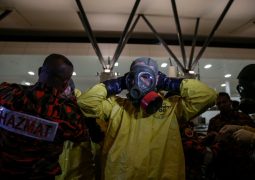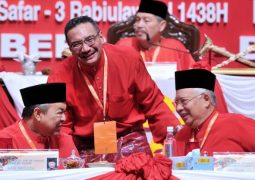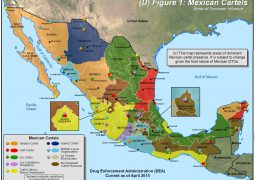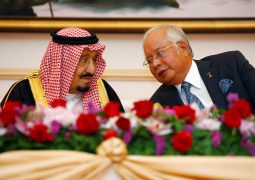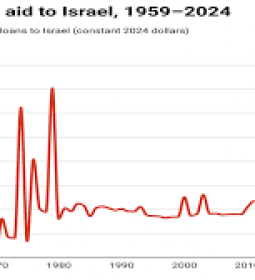Summary: Peace prospects for Afghanistan: Do they exit? What we know so far
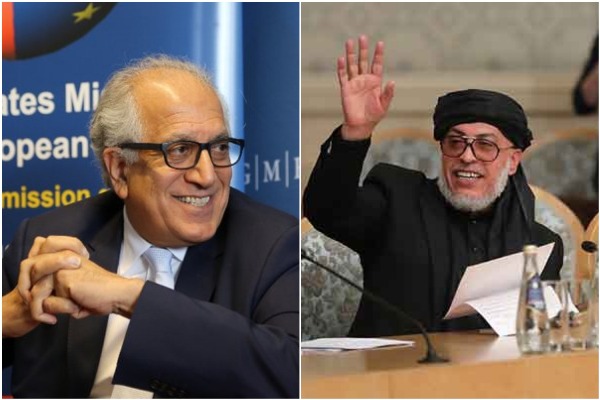
Latest round of talks ended with US envoy saying ‘faster progress’ needed in talks with Taliban to end the 18-year war.
![US-Taliban talks for peace in Afghanistan: What we know so far US and Taliban negotiators wrapped up their sixth round of peace talks on Thursday with 'some progress' [Reuters]](https://www.aljazeera.com/mritems/imagecache/mbdxxlarge/mritems/Images/2019/4/16/3fcd0853e4294d1eb6785d222d630995_18.jpg)
The talks hope to preserve the post-2001 progress made in the country after the Taliban government was overthrown by a US-led military coalition for sheltering al-Qaeda, the group blamed for the 9/11 attacks.
The Afghan government, however, is not involved in the talks as the armed group has refused to negotiate with it, deeming it illegitimate and a “puppet” of the US.
Analysts say peace has never been closer in Afghanistan since the talks with the US to resolve the conflict began.
Also, three meetings have been held since 2017 in Moscow between the Taliban, delegations from Afghanistan’s High Peace Council and senior Afghan politicians, including former president Hamid Karzai.
Last month, Afghan president Ashraf Ghani conducted a grand council with politicians, tribal, ethnic and religious leaders meeting in Kabul to discuss the ongoing negotiations with the Taliban.
But as these efforts remain in the spotlight, deep divisions among the Afghan government and politicians reveal several hurdles are yet to be overcome before peace is established in Afghanistan.
What has been agreed to so far in US-Taliban talks?
Khalilzad, an Afghan-American diplomat who served as US ambassador to the United Nations (2007-2009), Iraq (2005-2007) and Afghanistan (2003-2005), is leading the US side in the talks.
The Taliban has long demanded the withdrawal of US troops from Afghanistan, which has been a sticking point in the meetings between the US and the group in Doha and has blocked progress in the talks.
In previous rounds of talks, the two sides agreed on a “draft framework” that included the withdrawal of US troops, a discussion on Taliban’s commitment that the Afghan territory would not be used by international “terror” groups, and that a ceasefire would be implemented across the country.
But the Taliban insists it will not commit to any of these things until the US announces a withdrawal timeline.
The sixth round of talks ended on Thursday with “some progress” on a draft agreement on the withdrawal of foreign troops, a Taliban official said.
On Friday, Khalilzad said talks with the Taliban on ending Afghanistan’s war are making slow but steady progress, while signalling a growing frustration with deadly attacks in the country.
“We made steady but slow progress on aspects of the framework for ending the Afghan war. We are getting into the nitty gritty. The devil is always in the details,” Khalilzad said.
“However, the current pace of talks isn’t sufficient when so much conflict rages and innocent people die. We need more and faster progress. Our proposal for all sides to reduce violence also remains on the table.”
Why is the Afghan government excluded from talks?
The Taliban has long refused to negotiate with the Afghan government, which had repeatedly invited the group for talks with no success.
Washington also initially tried to get the Taliban to agree to talking with the Afghan government. When the Taliban refused to budge, the US was left with no option but to enter into the talks.
The group has given several reasons on why they were not willing to talk to the Afghan government.
Since the Taliban was overthrown by the US-led military intervention in 2001, the group maintains that the country has been occupied by foreign forces.
It says the Kabul government has no real power and considers it a “puppet regime”. The group says any engagement with the government would grant it legitimacy.
What is the Afghan president’s loya jirga?
Last month, the Afghan president held a loya jirga, a grand assembly which brought together more than 3,200 participants, including politicians, tribal elders and other prominent figures from across the country.
The council, which sought to hammer out a shared strategy for future negotiations with Taliban, ended with delegates demanding an “immediate and permanent” ceasefire.
However, Chief Executive Abdullah Abdullah, who shares power with Ghani, and former President Karzai were among a number of senior figures who boycotted the gathering, accusing the president of using it for political ends ahead of presidential elections scheduled on September 28.
Taliban said there had been progress in negotiations with the US and the loya jirga was an “obstacle for ending occupation” and was “sabotaging the authentic peace process”.
Moscow talks
In February this year, a two-day conference was held in Moscow between the Taliban and prominent Afghan politicians in a bid to lay down a plan for ending the war in Afghanistan.
But President Ghani dismissed the Moscow talks, saying those attending carried no negotiating authority.
What can cause US-Taliban talks to collapse?
Journalist and academic Dr Dawood Azami, who works as a multimedia editor at BBC World Service in London, said a peace deal could only be possible when both parties were flexible and willing to make concessions.
“The lack of consensus in Kabul, the failure of the Afghan government and the non-Taliban Afghans in general, to agree on the appointment of an inclusive and authoritative negotiating team able to negotiate with the Taliban will prove a major challenge and could result in a breakdown,” he said.
“I think the next phase of talks among the Afghans [generally termed as intra-Afghan dialogue] will prove more challenging than the first [US-Taliban talks]”.
Peter Galbraith, former US diplomat and former UN deputy special representative for Afghanistan, said if any peace deal was to happen, there would be several hurdles before it was implemented, which he felt was a sign of its possible collapse.
“The deal breakers are the possibility of exceptionally violent and gruesome Taliban attacks, the refusal of Afghan government to go along, a refusal of the Tajiks and Hazaras to accept a deal [even if approved by President Ashraf Ghani] and a Taliban belief that it can prevail militarily without a deal,” he said.
“But the biggest deal-breaker may be an inability of the Taliban negotiators to get all the factions of the Taliban to follow any peace document that is signed.”
Galbraith said the Trump administration’s determination to withdraw, regardless of the consequences, was probably the single most important factor in making a US-Taliban deal possible.
Why is Taliban refusing calls for ceasefire?
Intense fighting continues across the country even as the Taliban remains in talks with the US. The group now controls or holds influence over more Afghan territory than at any point in 2001.
“As the peace talks are entering an important phase, the Taliban want to maximise their leverage and speak from a position of strength at the negotiating table,” Azami said.
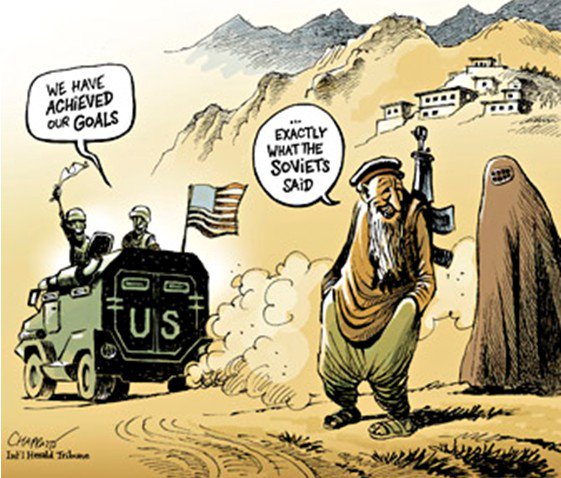
The armed group has also said in several occasions that there will be no ceasefire until the US troops withdraw from Afghanistan.
When the loya jirga called for an immediate ceasefire between the government and Taliban during the holy month of Ramadan, Ghani agreed to a truce provided it was not “one-sided”.
However, the Taliban rejected the call for a ceasefire, saying waging a war during Ramadan had “even more rewards”.
For Tolo News, Afghanistan’s largest private television station, Zalmay Khalilzad said last month that any peace agreement with the armed group would depend on the declaration of a permanent ceasefire and a commitment to end the war in Afghanistan.
“If the Taliban insist on going back to the system they used to have, in my personal opinion it means the continuation of war, not peace,” Khalilzad said.
What if the peace talks collapse?
A higher number of civilians were killed in the Afghan war in 2018 than any other year on record, a UN report released earlier this year revealed.
Civilian deaths jumped by 11 percent from 2017 with 3,804 people killed, including 927 children, and another 7,189 people wounded, according to the UN figures, as suicide attacks and bombings wreaked havoc across the war-torn country.
At least 305 civilians were killed by pro-government forces between January and March, 52.5 percent of all deaths in that period.
With the spike in violence, there is a growing desperation for peace among ordinary Afghans. “If the talks collapse, fighting will further intensify and the Afghan people will suffer more,” Azami said.
“The Taliban would try to increase their territorial control and put maximum pressure on the Afghan government by attempting to capture cities, including provincial capitals and taking control of major highways,” he said.
Azami said the Afghans and the rest of the world would have to deal with a “possible security vacuum in which groups such as al-Qaeda and ISIL found fertile ground”.
“Increased production of drugs and the overflow of refugees would pose serious challenges not only to Afghanistan but to the whole region and rest of the world,” he said
- Previous BRI geopolitics, Taiwan, the South China Sea, Huawei, Iran, North Korea, THAAD in Asia Pacific and Trade: What next? Sino-American ties being torn down brick by brick
- Next Russian Foreign Minister on peace talks with Japan




